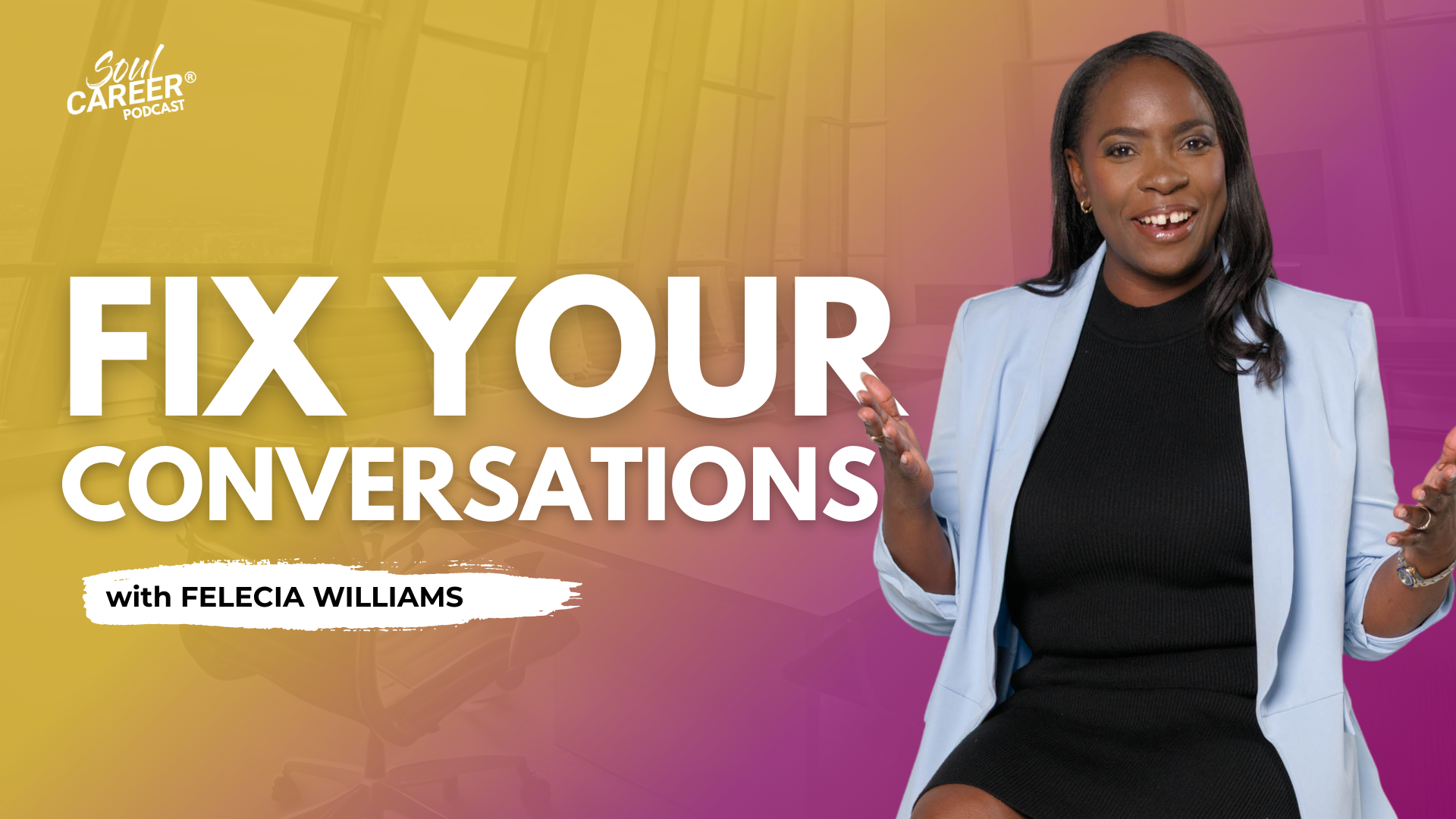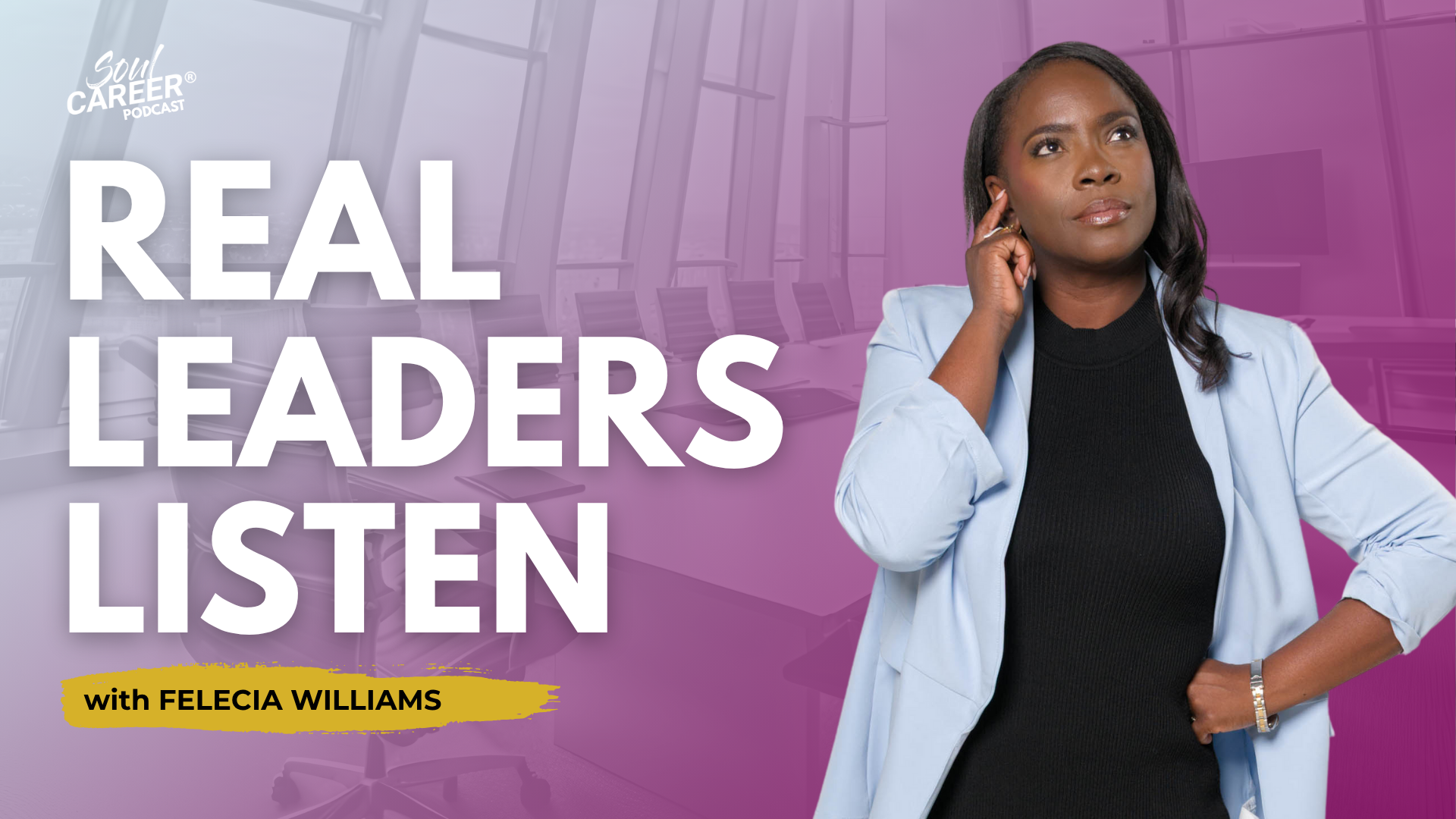How Taking a Sabbatical From Work Can Benefit Your Career
How Taking a Sabbatical From Work Can Benefit Your Career
.jpg)
Many of you may be considering taking a break from work. I know the thought sometimes crosses my mind. But how many of us are willing to take the plunge?
My guest for the latest episode of The Soul Career ® podcast, “How Taking a Sabbatical Can Benefit Your Career,” Laura Maydon, did just that.
Laura is the Founder and former Managing Director of Endeavor Miami – a mission-driven organization that helps entrepreneurs scale. And that has over 30 locations around the world.
I met Laura when she was still Managing Director of Endeavor. We connected because we were both leading organizations in the same industry, and we are both Harvard Business School alums.
I like to share tips and stories that you can use to find the career of your dreams, but for this podcast, I thought I would switch gears and explore the benefits of taking a break from work. I have met many professionals who desperately need a sabbatical but are afraid to take one. Laura shared her experience as someone on a two-year sabbatical (she sits on multiple boards). And explained the impact it has had on her life, both personally and professionally.
Laura’s upbringing and early career
Laura attended university in Mexico City. After university, she worked at several small private equity firms both in Mexico and the United States. She also did a short stint in the corporate world before finally deciding to start Endeavor Miami Inc. Laura currently lives in Miami with her husband and three daughters aged 23, 13 and 9.
Why she decided to take a sabbatical
Laura loved leading Endeavor Miami. She believes that her identification with and passion for Endeavor’s mission made her job enjoyable. She especially loved being involved with the organization during the building and growing phase. However, after six years as Endeavor Miami’s Managing Director, she also believed that she had come to the end of her cycle as its leader. By this time, she had been working nonstop for roughly19 years and wanted to prove to both herself and her daughters that she could slow down.
Did she have any fears going into her sabbatical?
Laura believes that most of her fears were based on the messages she received from others. She found that some of her peers were uncomfortable with the idea of a sabbatical. With many telling her that she was making a mistake. Laura admits that initially, she internalized these thoughts. However, she now understands that many of these individuals, though well-intentioned, were speaking from their own experience. And that in the end, she is the manager of her life and her career.
Her experience so far
Laura describes her decision as well-thought-out but extremely difficult and her experience as a cycle. In fact, for the first three months, she would wake up and think that she was still working. Her struggle with her decision is not surprising. I find that most individuals actively resist taking a break from work, even if they genuinely need it. Laura has also had a lot of support from her husband. For example, when she left Endeavor in July 2019, her husband booked a month-long vacation to Italy. Where she relaxed and reconnected with her daughters, Laura believes that this support has enabled her to reenter the workforce in her own time. The support Laura received from her husband is an interesting point. Many individuals are interested in taking a sabbatical but are unsure about how they would financially support themselves during this time. I advise anyone in this position to take a good look at their finances. Do you have any savings and if so how much? Can you adjust their lifestyle to reduce costs? Can you develop a financial plan leading up to the sabbatical? Do you have a spouse or partner who is willing to support you while you take a break? Answering these questions will help you determine if a sabbatical is a feasible option for you.
Interestingly, Laura did not plan to take a 2-year break. She initially thought about returning to the workforce immediately following her month-long vacation in Italy. And at the very least at the start of 2020. She believes that COVID-19 helped her to slow down and focus on the things that she wanted to do like meditating, getting more exercise or learning to play the guitar.
Who did she become when she stopped working?
Laura describes her sabbatical as a period of self-discovery. So far, she has discovered that she is more creative than she initially thought. She also believes that her sabbatical has made her more grounded and has brought her closer to her family.
Laura’s comments made me think about the concept of a Universal Basic Income. What would happen if governments provided their citizens with a living wage and people did not have to work to pay their bills? In this instance, I believe that work would no longer be a means of survival but would be more about finding ways to express ourselves. That is how I define a Soul Career® – it is not just about money. A Soul Career® is a career that gives you the ability to bring forth who you are into the world.
How does she plan to reenter the workforce?
I know many individuals, women in particular, who have had to leave the workforce during the COVID-19 pandemic to care for their loved ones. Many are worried about when and how they can reenter the workforce. That’s why I was particularly curious about the impact Laura’s two-year gap has had on her career prospects. Laura stated that she hasn’t found her gap to be an issue. However, she pointed out that her sabbatical was ‘active.’ She still sat on several boards and kept in touch with her professional network. She is also focusing her energy on joining either the entrepreneurial or investor space. In both these spaces, a gap in one’s resume would not be a deal-breaker. Whatever she decides to do Laura has three main criteria for her next professional move: first, she wants to be aligned with the mission of whatever company she works for. Second, she wants to create solid relationships with her work colleagues. And finally, she wants the freedom and flexibility to spend time doing the things she loves.
Her advice for anyone who is thinking of taking a sabbatical
First, she believes that you should plan the financial aspect of your sabbatical. Second, it is easy to talk yourself out of the decision, so once you have decided and planned your finances go ahead and do it. And finally, a sabbatical is about slowing down so take your time and enjoy it.
That’s all for this post. You can find the full episode of this podcast on the Soul Career YouTube channel or any podcast player.

.png)

